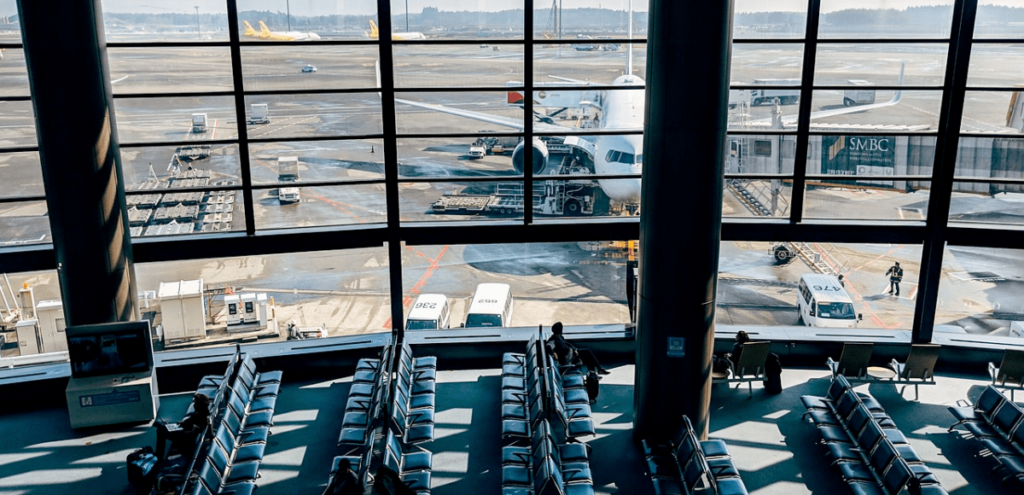Fraud in the travel industry is a formidable challenge, but it can be effectively managed through a combination of education, advanced security tools, and dedicated resources.
The travel industry is witnessing a significant surge in cyber fraud, impacting airlines and hotels globally. According to research, the airline industry accounts for 46% of all fraudulent payment transactions as of 2023. The International Air Transport Association reports that airlines lose 1.2% of their mobile and website sales revenues to fraud, costing airlines a minimum of $1 billion annually.
These growing threats not only jeopardize financial assets but also erode customer trust—an invaluable commodity in hospitality. This article explores the major fraud challenges facing airlines and hotels and offers practical solutions to combat these cyber threats effectively.
How fraud affects the airline and hotel industry
Fraud in the travel industry manifests in several forms, each posing unique challenges to companies striving to maintain secure customer interactions. These include the following:
Loyalty program fraud
Loyalty points are a high-value target for fraudsters. Attackers gain unauthorized access to loyalty accounts through account takeovers (ATO) and phishing schemes, which can lead to stolen points, unauthorized redemptions, and revenue loss for businesses. It is estimated that $3.1 billion in redeemed loyalty points are fraudulent, leading to losses of around $1 billion every year, according to a report by the Loyalty Security Association.
Booking scams
Phishing sites and fake booking platforms deceive customers into paying for non-existent flights or stays, damaging brand reputation and customer trust. These scams typically spike during peak travel seasons, preying on unsuspecting travelers with “exclusive deals” that are too good to be true. Cybercriminals have shifted to more complex impersonation tactics that are harder for consumers to recognize.
“One of the biggest threats to the travel industry today is digital impersonation — fraudsters setting up cloned booking platforms or spoofing customer service sites to deceive travelers,” says Israel Mazin, CEO of Memcyco, a leading digital risk protection solution.
Digital payment fraud
Fraudulent transactions remain a persistent issue, especially during online bookings. Travel companies often face high chargeback rates, which not only impact revenue but also affect relationships with payment processors. This type of fraud complicates financial workflows, as businesses must verify transactions without compromising customer experience. A 2023 global survey by Statista finds that 53% of payment providers in the travel industry consider cybercrime and fraud to be among their top risks and challenges.
Mazin says that in the case of payment fraud, the loss is not just financial but goes deeper. “It’s not just about the money. There’s also the loss of consumer trust. If a customer gets scammed while booking a vacation, they’re not likely to come back.”
Fraud doesn’t just affect revenue; it impacts brand reputation and operational efficiency, as well. In the travel industry, customers rely on trust when choosing airlines and hotels, underscoring the importance of preventing fraud incidents at all costs to prevent losing customers. Furthermore, fraud detection and management often require significant resources, adding an operational strain that diverts focus from customer service.
Implementing practical fraud prevention measures
Addressing fraud in the travel industry requires a multi-layered approach, combining employee training, technology, and customer education.
- Employee training. While fraud primarily targets consumers, employees in airlines and hotels play a crucial role in safeguarding customer interactions. Training staff to identify potential fraud indicators can strengthen overall security. For instance, employees handling customer complaints or loyalty program inquiries can be trained to spot and escalate suspected fraudulent activity, such as fraudsters claiming potentially stolen loyalty points.
- Advanced authentication. Multi-factor authentication (MFA) for both employees and customers can reduce unauthorized access to accounts, particularly loyalty programs, making it a critical addition to any travel company’s security framework.
- AI-driven fraud detection. Leveraging AI to detect fraud patterns in real-time helps companies proactively prevent losses. With machine learning algorithms that adapt to new fraud tactics, AI tools enable travel companies to respond quickly to emerging threats, offering a critical edge in fraud management.
- Security protocols. Establishing robust security protocols is critical as cyber threats continue to evolve. Regular audits of fraud prevention measures help identify vulnerabilities, ensuring that systems and processes remain effective. These audits should cover not only technological defenses but also procedural safeguards, such as secure data handling and customer verification practices.
- Shared intelligence. Collaboration through shared intelligence networks is another vital strategy, including membership in relevant groups under the Information Sharing and Analysis Organization Standards Organization (ISAO SO). By partnering with other travel companies and cybersecurity firms, airlines and hotels can gain insights into emerging threats and fraud tactics. Some industry groups include the Cyber Threat Alliance (CTA), the Travel and Hospitality ISAC, and the International Air Transport Association (IATA)-Fraud Prevention Group. Collaborations lead to faster, coordinated responses to new challenges, reducing the risk of widespread attacks.
Solutions that address travel industry fraud
In addition to internal strategies, travel companies such as airlines and hotels can utilize specialized solutions that offer innovative approaches to fraud prevention.
Memcyco focuses on preempting digital impersonation and ATO fraud, which are particularly problematic for airlines and hotels. It offers a real-time solution that prevents customers from spilling their personal information on spoofed websites, keeping them safe and preserving their trust in the brand. The AI-powered solution uses “nano defenders” to detect website impersonation attempts in real time and alerts the company immediately, sharing full details of the customer that was targeted, the attacker, and the scope of the attack. Another tactic Memcyco uses is decoy data, which replaces real customer information with fake data that is used to locate the attacker, similar to how marked money works in a bank robbery. Memcyco’s approach is unique in that it is proactive in preventing threats before they cause damage, as opposed to reactive approaches that attempt to mitigate the consequences post-facto.
KnowBe4 provides comprehensive training programs to help employees identify and respond to phishing attempts, fake booking inquiries, and other fraudulent activities targeting customers. For instance, employees handling loyalty program issues or customer complaints are often the first to encounter potential fraud. This solution provides simulated phishing campaigns and interactive training sessions that improve staff awareness and response capabilities. Employees trained to recognize red flags can escalate fraud concerns to security teams before they cause significant harm. This aligns with the earlier point on the importance of empowering frontline staff as part of a layered defense strategy.
Cybersource enables airlines and hotels to address fraud in the travel sector by integrating advanced fraud detection and prevention tools directly into payment and booking systems. Its platform uses machine learning to analyze transaction patterns, flagging potentially fraudulent activities such as stolen credit card usage or unusual booking behaviors. Cybersource collaborates with partners like travel-focused payments provider Sabre, detecting suspicious transactions in real time through fraud management tools with travel reservation systems. The goal is to have a proactive approach in reducing chargebacks and unauthorized transactions, thus minimizing the potential financial losses of fraud.
Conclusion
Fraud in the travel industry is a formidable challenge, but it can be effectively managed through a combination of education, advanced security tools, and dedicated resources. By combining advanced technology with robust training and collaborative intelligence, travel companies can not only safeguard their operations but also set new benchmarks for trust and security in the industry. For airlines and hotels, embracing solutions while taking strategic internal measures can offer a clear path forward to secure operations and strengthen customer trust.
Premium IPTV Experience with line4k
Experience the ultimate entertainment with our premium IPTV service. Watch your favorite channels, movies, and sports events in stunning 4K quality. Enjoy seamless streaming with zero buffering and access to over 10,000+ channels worldwide.

















